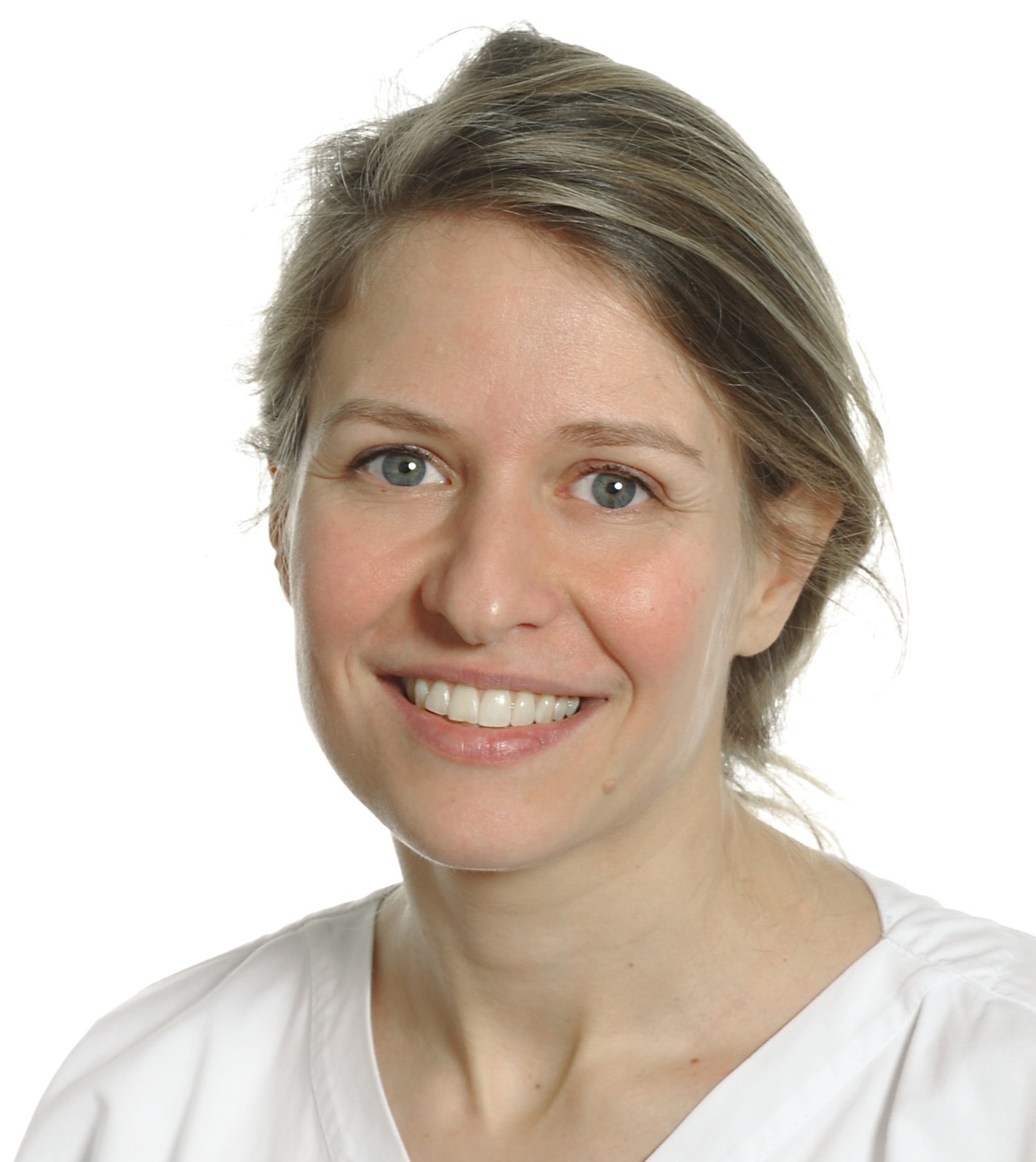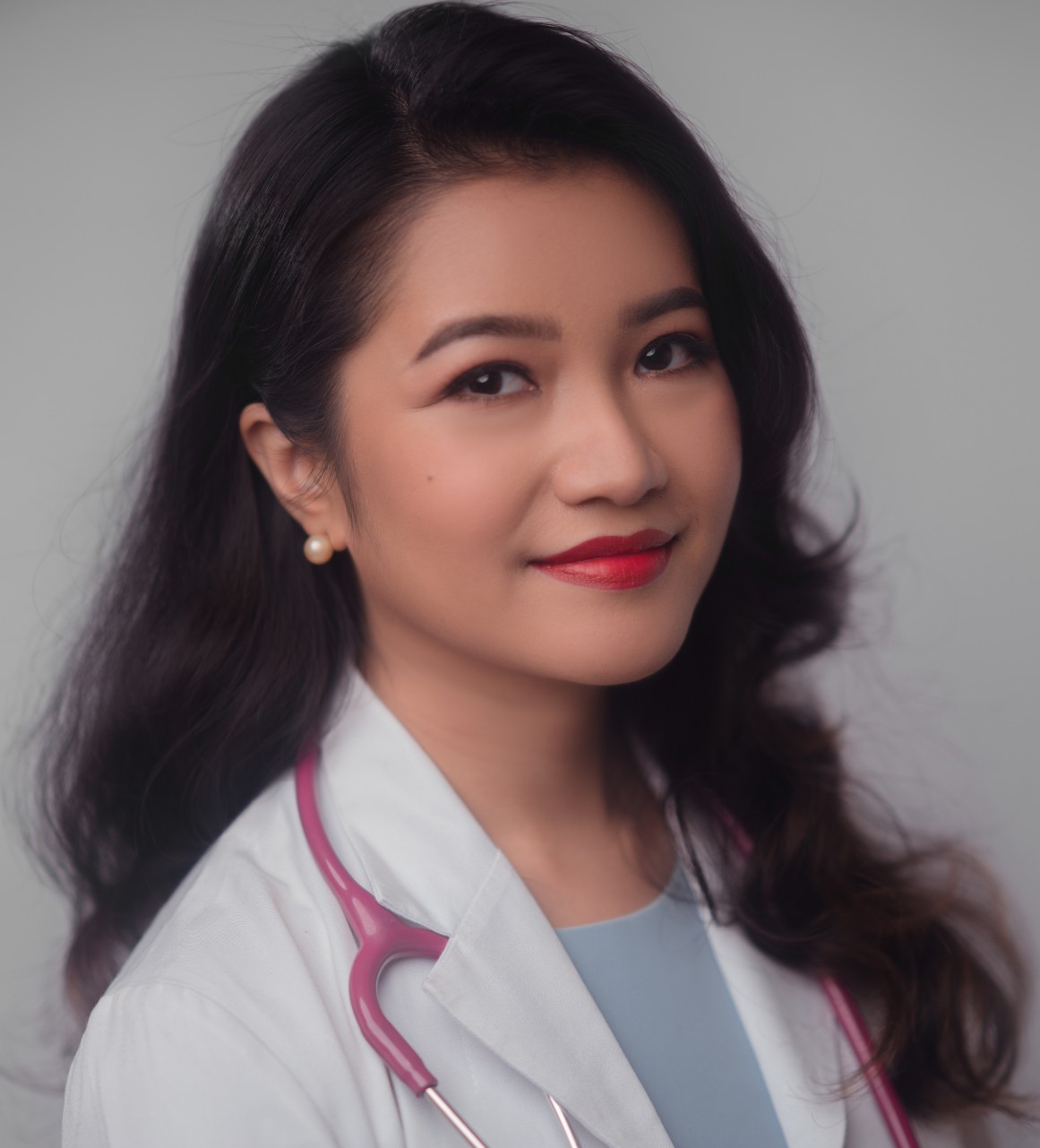What stands in the way of women hepatologists advancing to achieve full gender equality? A factor often pointed to is a systematic lack of support for their careers. Fortunately, more and more initiatives striving to address this are underway. Career support is all the more fortunate when it happens on a woman-to-woman basis. Below is a wonderful story of sisterhood, that originated from a song composed about the liver! Indeed, Dr Magdalena Filipowicz Sinnreich won first prize in the EASL Share contest held at ILC 2020. She decided to share her prize with fellow woman hepatologist, Dr Thinzar from Myanmar.
Dr Magdalena Filipowicz Sinnreich
What is your specialty?
I am an MD/PhD trained as a gastroenterologist/hepatologist, as well as a basic researcher in biochemistry and immunology. I am heading the Laboratory of Liver Immunology at the Department of Biomedicine of the University Hospital in Basel and I lead the Clinicial Hepatology Service at the Basel University Medical Clinic in Basel-Land. I am also a lecturer at the Medical Faculty of the University of Basel. My PhD studies focused on chronic viral hepatitis C and the response to treatment with interferon-alpha.
My current research interest is the gut–liver axis and the role of Mucosal-associated invariant T (MAIT) cells therein.
Why have you decided to share your prize with Dr Thinzar?
The prize in the EASL Share competition gave, all of a sudden, my initial fun idea (coming up with a liver lovesong in the kitchen after a long day of Digital ILC 2020 and after having put our three small kids to bed…) a somewhat broader impact, as I was given the opportunity to offer a fellow hepatologist a free EASL membership and access to EASL conferences.
I contacted Prof. Francesco Negro in Geneva – who travels to the farthest corners of the world to improve liver health care– and asked whether he would know a suitable candidate. I am very happy that he suggested Dr Thinzar, a liver specialist from Myanmar, whom I contacted.
I look forward to meeting her in person and to future collaborations.
What could be the next steps towards reaching gender equality in science?
It is disconcerting to see such a small number of women in key clinical and academic positions. A possible explanation may be that in the absence of women’s voices during selection processes, women may not be chosen for higher positions. Therefore, more women should be actively promoted to selection and decision-making committees, and more women should be invited as experts and chairs to scientific meetings, also to improve their visibility.
Women need to be hired more often – even if they tend to sell themselves in a somewhat less self-promoting (but maybe more realistic) manner. It will be of help if positions are created that are reserved for women.
Of particular importance: a woman’s career is uniquely influenced by the child-raising period. It is then when a helping hand is needed, in the most vulnerable phase of family life, when she is building a family and needs to divide her strength (yes, both physical and emotional) and time between her private and professional life. Mentoring should be especially strong during this phase and funding agencies should be taking this into account when setting age-limits for women.
Appreciate women for what they do and how they do it. Hire them, promote them, and you will be rewarded with their persistence, diligence, and excellence!

Appreciate women for what they do and how they do it. Hire them, promote them, and you will be rewarded with their persistence, diligence, and excellence!

Sometimes the work of women in science goes unnoticed, as do our scientific observations. It is crucial that our peers, women and men, recognise our work, endorse our achievements, and most importantly, that we all help one another
By arranging more events and platforms, such as this International Day of Women and Girls in Science, women doctors, scientists, and those young girls dreaming of following such a path, will be able to meet, bond, and help one other achieve their aspirations.
Dr Thinzar
What is your specialty?
I am a Medical Doctor from Myanmar and currently working in a private clinic. My alma mater is University of Medicine 1, Yangon, from which I received my M.B., B.S. My MSc in Gastroenterology came from Queen Mary University of London.
I also did a clinical attachment at the Royal London Hospital’s Gastroenterology and Hepatology departments after my MSc. I am also an elected member of the Royal Colleges of Physicians of the United Kingdom in 2019. I am a member of Myanmar GI and Liver Society and also a member of the principle and policy committee of GI and Liver Foundation Myanmar.
My future plan is to get into a speciality training programme in Gastroenterology and Hepatology in the UK. At the moment I cannot go to the UK, however, because of the delays due to the pandemic.
How did you meet Dr Filipowicz and what opportunity do you see in being an EASL member?
I still haven’t met Dr Filipowicz in person yet, but I do hope to meet her soon in the near future to thank for her generous offer. After she won the EASL Share competition, she wanted to share her prize with a doctor from a less privileged country. So, Prof. Francesco Negro, whom I had the honour of meeting in Myanmar back in 2018, recommended me. I am very grateful to both Dr Filipowicz and Prof. Negro for the very generous opportunity.
Being an EASL member now, I get access to latest research articles and educational materials, which are all very beneficial in my career development. And when there are in-person EASL events again, I am very much looking forward have an opportunity to network with the experts in the field of hepatology and to receiving guidance and mentorships, which will be of great help for me in the early stages of securing a training post in gastroenterology and hepatology.
What could be the next steps towards reaching gender equality in science?
To respect, promote, and mentor a person, regardless of their gender, race, and cultural difference. To honour female professionals and leaders, by promoting them to well-deserved leadership roles and celebrating their accomplishments.
Sometimes the work of women in science goes unnoticed, as do our scientific observations. It is crucial that our peers, women and men, recognise our work, endorse our achievements, and most importantly, that we all help one another. To advocate for both maternity and paternity leave, as childcare responsibilities still primarily fall upon women.
Last but not least, by arranging more events and platforms, such as this International Day of Women and Girls in Science, women doctors, scientists, and those young girls dreaming of following such a path, will be able to meet, bond, and help one other achieve their aspirations.

